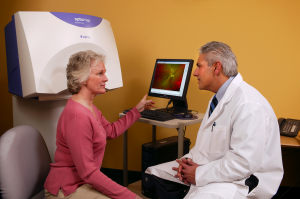Teaching your Patients How to be Good Patients
January 7, 2010 by Viki Kind
Filed under For Healthcare Professionals
 Time is limited and the patient keeps talking and talking. What can you do? I realize that patients aren’t taught how to be good patients. So it is up to us to teach them. I have three recommendations for you.
Time is limited and the patient keeps talking and talking. What can you do? I realize that patients aren’t taught how to be good patients. So it is up to us to teach them. I have three recommendations for you.
Recommendation #1 Have them write out what they want to talk about before their appointment. Now I am sure you have heard this before, but the part that most doctors miss is to get them to prioritize their questions. I tell them to circle the most important 2 questions they want to discuss with you. Otherwise you just get a long list of random questions without any sense of what they truly want you to focus on. Patients understand that you can’t answer all of their questions but they will be satisfied if you take care of the most urgent issues. I have a questionnaire form, Viki Kind’s Office Form that you can download to help you help the patient. I encourage you to give copies to your patients to keep at home so they can fill them out before their appointment. If they haven’t filled one out before they arrive, then have them work on it while they are in your waiting room. In the medical practice I used to manage, we had a clipboard and form all ready for the patient when they checked. This is an easy way to be more efficient and to increase patient satisfaction.
Now some of you might be thinking, “Good, I don’t have to spend time listening, I can just read their list.” Well, you can if you want but your patient will be angry and non-compliant. If your patient doesn’t trust you or trust that you care about them, they won’t heal as fast or follow your instructions.
Here is Recommendation #2. It is up to you to build a caring relationship with them and you do that through compassionate dialogue, not a monologue. The act of listening has its own healing properties.
Recommendation #3 The other thing you need to educate patients about is to stop asking you the, “Oh by the way…” question as you are about to walk out the door. You need to tell them up front to ask you the most important questions at the beginning of the appointment or else you won’t have to time to address their concerns. Of course, this is a hard habit to break for patients and you will have to give them time to learn to be more direct with you.
Bonus Information: Unfortunately, some of these techniques will not work with certain cultures as they use a form of indirect communication which dances around the topic and takes longer as the only way they know how to communicate. But for most of your patients, these techniques will help you manage your time while caring for your patients.
Have a kind and respectful day.


